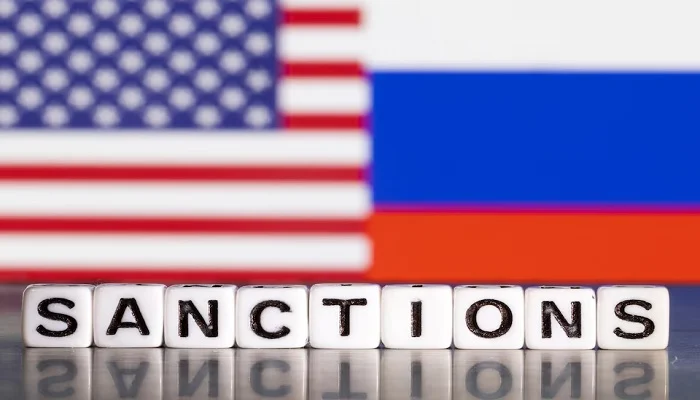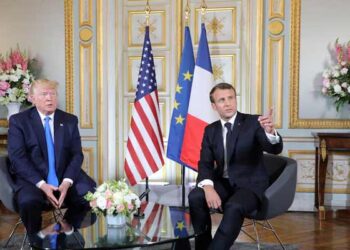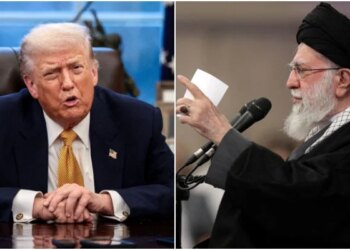Select Language:
US President Donald Trump’s administration is considering additional economic sanctions against Russia, targeting vital sectors of its economy if Vladimir Putin continues to delay ending the conflict in Ukraine, according to sources familiar with the matter. These potential measures could include increased restrictions on banking and energy industries, as well as sanctions on infrastructure involved in oil transportation.
US officials have also communicated with their European counterparts to express support for utilizing frozen Russian assets to purchase US weapons for Ukraine. There are internal discussions about leveraging Russian assets held within the US to bolster Ukraine’s defense efforts. Though no concrete actions are imminent, this suggests the administration has a comprehensive set of tools ready for escalation after the previous sanctions imposed last Wednesday—the first since Trump’s return to office in January.
While Trump portrays himself as a global peacemaker, he’s acknowledged that resolving Russia’s ongoing three-year-plus war in Ukraine is more complex than anticipated. His failed diplomacy in Alaska with Putin in August, and recent statements that he won’t meet Putin unless significant progress toward peace is made, reflect a cautious approach.
European allies, fluctuating in their responses to Trump’s diplomacy, hope he will continue exerting pressure on Moscow. An unnamed US official indicated a preference for European nations to take the next significant step, perhaps through additional sanctions or tariffs. Meanwhile, Trump is expected to pause for a few weeks to assess Russia’s reaction to the latest sanctions.
The recent sanctions targeted major Russian oil companies like Lukoil and Rosneft, causing oil prices to rise by over $2 a barrel and prompting China and India—key buyers of Russian crude—to seek alternatives. Trump indicated that discussions with Chinese President Xi Jinping might include Russian oil purchases, though China is reportedly reducing its Russian crude imports significantly, and India is halting altogether.
Some of the new sanctions under consideration also aim at Russia’s banking system and the infrastructure supporting oil exports, according to sources. Ukraine has proposed additional measures, such as disconnecting Russian banks from the US dollar system, but US officials have not confirmed whether these requests are being seriously considered.
Congressional efforts to pass a bipartisan sanctions package are ongoing, with some senators pushing for its approval. A senior administration source stated Trump is open to endorsing the bill eventually, though it’s unlikely to happen within the current month. The Treasury Department did not comment on these developments.
Russian officials, including Vladimir Putin’s economic envoy Kirill Dmitriev, believe that Russia, Ukraine, and the US are close to a diplomatic solution to end the fighting. Ukrainian spokesperson Halyna Yusypiuk expressed appreciation for the recent sanctions but declined to comment further, emphasizing that dismantling Russia’s military capabilities remains a key objective.
The week was marked by a series of diplomatic shifts and conflicting signals. Trump initially planned a meeting with Putin in Budapest after speaking with him last week but then canceled it, citing discomfort. Conversely, he met with Ukrainian President Zelensky in Washington to discuss ending the war, where Zelensky resisted suggestions to cede territory in exchange for peace.
Russia subsequently sent a diplomatic note reaffirming its peace proposals. Despite Trump’s assertion that his meeting with Putin was canceled, Russian officials indicated that the leaders still intend to meet later. Political insiders suggest Trump’s decision to impose sanctions was influenced by a mixture of diplomatic misjudgment and strategic calculation, with the White House ultimately moving forward with the measures after a Wednesday meeting with key officials.







